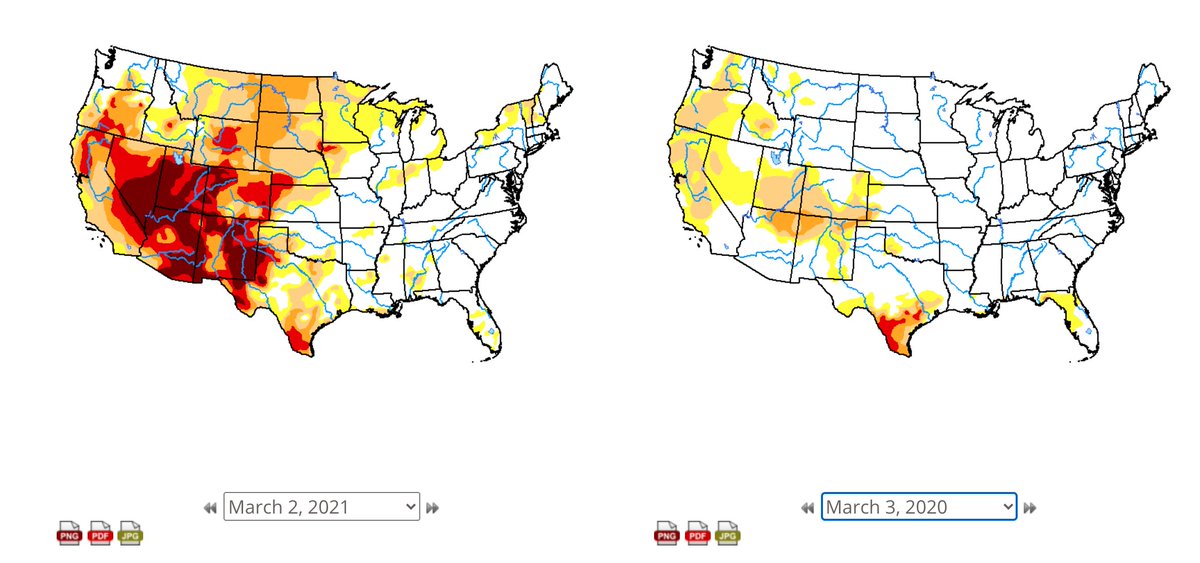It's an odd sort of year; no snow, warm winter, cold spring, late frosts, early and record heat waves; few birds went away, few came, almost no wasps or yellowjackets, creek that dries up in June dried up in April, crops burned by heat in the daytime and cooled enough at night not to make fruit, and the Delta variant of Covid roams around outside, seeking whom it may devour, yet ignored by all the neighbors, nearly all of them enthralled by misinformation and by the autocrat who actually tried to destroy the nation and has faced no consequences.
I've been spending most of my time on another site, combating the misinformation and trying to spread the principles of science and disaster risk reduction, not because I don't have anything else to do but because, increasingly, there's little else I can do. Many who have reached the age of seventy-two have much more active lives, many have less active lives. It's a combination of circumstances and choices we all made -- my tree-planting years were my best but they did cost me. 😎 So it goes.
I may or may not, as well, have an undiagnosed case of Long Covid. Friends and I got together on the last day of February, 2020, agreed it would be the last such gathering for some time, and went home and pulled up our drawbridges. Within ten days, all of us were almighty sick, three hospitalized. No one tested positive, but those were very early tests, and our symptoms were certainly consistent with what we were hearing about the new disease. Luckily for my family, some of us had pulled together for a pod here on the homestead, and to make sure none of us brought in the virus, we had all isolated. I don't seem to have become a source of infection.
Here I am in isolation and recovery in the hut, 200 feet from the house. Food was delivered in the basket shown hanging at right. Such huts would be useful for many purposes, I should think, and not just to relieve homelessness, although that might well be the best use.
What have I been up to? Focusing on family, a few friends, the sangha, and stewardship (as able) of this acre.
In the garden we again covered everything we could with black plastic to smother bindweed and such, then gradually switched over to kraft paper, leaves, grass clippings, and chop and drop, all covered with a layer of straw.
The containers at left were an experiment to raise things without feeding them to voles. Voles wiped out our beets last summer, a new experience for us, and then exploded in population over the winter. But they have not done much this year, so far.
As much as possible, as usual, we raised seedlings from seed.
Mice were again too much for us in the greenhouse, so many things were raised in the dining room. Large seeds, such as beans, peas, corn and squash, are the most vulnerable.
It proved to be a good cherry year and we quickly bought a good hand-held stoner to take advantage. It will be, it looks like, a medium apple year and a very good pear year. The gardens are producing plenty of foliage but not as much actual food for the effort as in the last twelve years or so. I'm drying down greens foliage for vegetable powder, as usual, and expect soon to be making some apple butter.
A concern this year, again, is wildfire season. Last year the Holiday Farm Fire burned over 400 houses and then headed our way; we had to evacuate for the first time. And drought is much worse this year than last.
When lockdown began, in March 2020, we raided the teardrop, Tessa, extensively for supplies, and have focused on re-stocking her in case of another evacuation. Extremely large fires have already erupted throughout our region, and though we locally have surprisingly had almost no smoke and little flame, we feel this cannot last. So we have to be prepared to pull out of the driveway at a moment's notice.
I've adopted two principles. One is the motto: "Observe to predict. Predict to prevent." This is about disaster risk reduction, or DRR, which can be applied at any scale, including personal. Choices make hazards into disasters -- or don't. So I prep for fire as a socially responsible behavior. Also to run from smoke.
The other is: "Everyone reaps what you
sow." I thought of this one myself; it represents a distillation of the
Buddhist Prajnaparamita sutras, which advocate for the view that wise
choices are based on the observation that everything is made up of
everything else and has no lasting separate identity.
Pain is DNA's way of protecting itself and its prerogatives, but I see no utility in gratuitously causing it. Community and compassion are also strategies adopted by DNA. This motto doesn't look into
whether harm is even a thing, at cosmology/teleology scale; it simply provides a
handy basis for what can be called ethical behavior. Here one abandons certainty and goes with trust.
Dogen said of emulating Buddhas: Do such things and you will be such a person. I'll try that.








